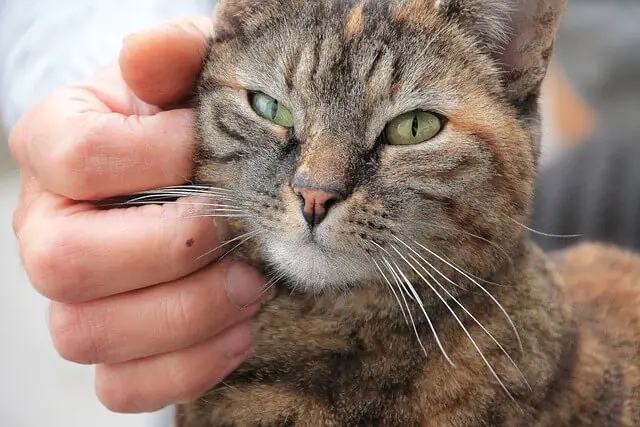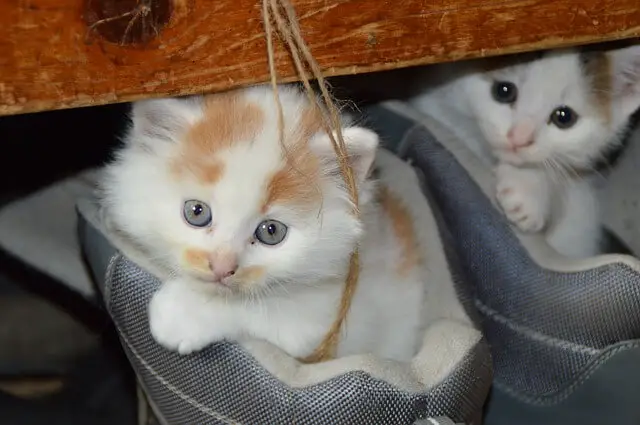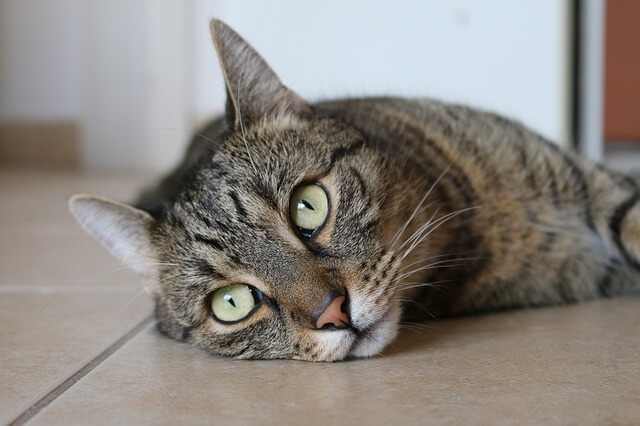Hyperthyroidism in Cats: Causes, Symptoms & Treatment
14.03.2022.
There’s nothing more we’d want than to keep our cats as healthy and as happy as possible, all the time. Unfortunately, various diseases and conditions can affect them. It is crucial cat owners are familiar with them. The sooner we notice them, the sooner we can start the treatment. One of the most common conditions cats can have is hyperthyroidism. If you think there’s something weird going on with your cat and you suspect this condition, here are a few things you should know about hyperthyroidism in cats.
What is hyperthyroidism in cats?
You can probably guess by the condition’s name that it has something to do with the cat’s thyroid gland, and you’re right. Cats have two thyroid glands, which play a crucial role in controlling their metabolism. These glands are located in the cat’s neck, and when they function properly, we barely think about them - ever. Hyperthyroidism is a condition that causes the overproduction of thyroid hormones which affect the cat’s metabolism. However, the cat’s metabolism isn’t the only thing that will get affected; many organs can suffer, especially the cat’s heart.
What causes hyperthyroidism in cats?
Despite all the advances in science and veterinary medicine, we still don’t have a definite answer about the cause of this condition in cats. It’s similar to cancer in that regard. Vets believe various genetic and environmental risks cause the condition. This condition is still being studied, and many studies focus on the effect dietary iodine has on this condition in cats.

Which cats are prone to hyperthyroidism?
Hyperthyroidism is one of those conditions that can affect any cat that possesses a thyroid gland. Since all cats have them, all cats have the potential to develop this condition. However, we mentioned vets and scientists are studying this condition, so they were able to draw some conclusions. They noticed senior and geriatric cats are more prone to it. They have also noticed some breeds are less prone to this condition. Those breeds are;
However, just because you have one of those breeds at home doesn’t mean they might not develop hyperthyroidism. Make sure you keep a close eye on your cat and make sure they’re as healthy as possible.
How can I know if my cat has hyperthyroidism?
Most cat owners will notice something weird is going on with their cats, but they might not suspect hyperthyroidism at first. If you have an older cat, you should know they are at a greater risk. Cats with this condition will experience behavioral changes, most noticeable towards aggressiveness. They will also eat more but lose weight, which most cat owners will notice. You can also learn hyperthyroidism symptoms and make an educated guess about your cat’s condition.

Hyperthyroidism symptoms
As you can imagine, cats that develop hyperthyroidism will exhibit specific clinical signs. Most cat owners will easily notice them since the cat’s behavior and eating habits will change. The first thing you should know is that 95% of hyperthyroidism cases are connected to cats over 10 years old, so if you have an older cat, hyperthyroidism might be a real possibility. Here are the most common hyperthyroidism symptoms in cats;
- Restlessness
- Aggressiveness
- Increased drinking and urination
- Increased vocalizing
- Weight loss despite increased hunger
- Periodic vomiting and diarrhea
- Poor coat quality
- High blood pressure (hypertension)
- Thyrotoxic cardiomyopathy (a specific form of heart disease)
How is hyperthyroidism in cats diagnosed?
Experienced vets usually don’t have issues diagnosing hyperthyroidism in cats. The most important test is the blood test, where the vet will look for elevated thyroid hormones, especially total thyroxine (TT4). In most cases, cats will have TT4 levels significantly elevated, which is usually enough to confirm the diagnosis. However, in some cases, TT4 levels are elevated but still considered normal. If that happens, the vet will look for other hormones. The tests the vet will take are free T4 by equilibrium dialysis or a T3 suppression test. If that is still inconclusive, the vet might repeat the TT4 test in a couple of weeks.
How is hyperthyroidism in cats treated?
The good news is that hyperthyroidism in cats is usually treated pretty effectively. There are several options, and the vet will determine the best one for your cat based on additional tests. For example, if the cat develops cardiomyopathy, the vet will perform an ultrasound of the heart and check for possible concerns. Hyperthyroidism in cats can be treated by;
Surgery
Surgery is usually performed if the cat is generally healthy. The vet will remove the affected thyroid gland, and the issues should disappear. If the surgery was successful, the vet will give the cat medications.

Medications
Cats that are being treated for hyperthyroidism are often prescribed methimazole. This is a medication cats will have to take for the rest of their lives. However, this drug should restore the cat’s thyroid hormones to normal levels, and the clinical signs should rapidly improve.
Radioactive iodine
The thyroid gland is responsible for radiation absorption, so radioactive iodine therapy aims to destroy the affected thyroid cells without damaging the rest of the cat’s organs. It is a safe and effective way of dealing with this condition.
World Cat Finder Team







Share